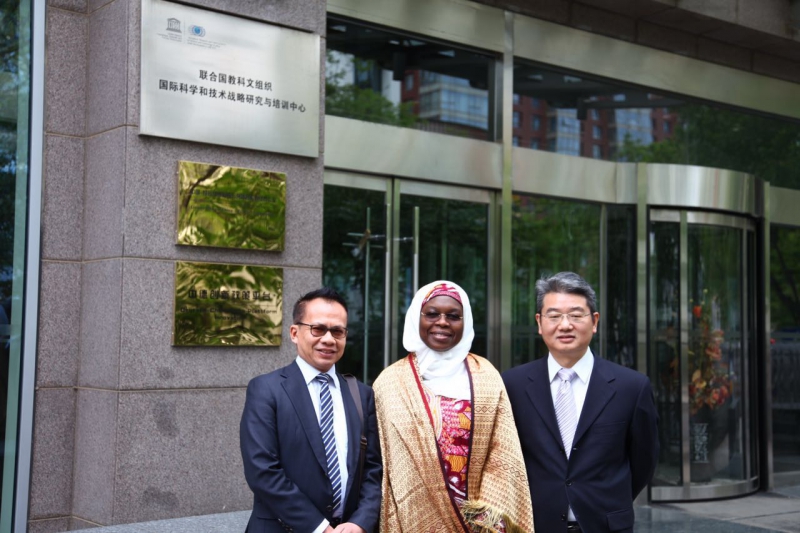International Research and Training Centre for Science and Technology Strategy (thereafter noted as "CISTRAT"), established in May 2012 as a Category II Centre under the auspices of UNESCO, is based in the Chinese Academy of Science and Technology for Development (CASTED), which is a research institute directly affiliated to the Ministry of Science and Technology (MOST) and one of the most significant S&T policy think tanks in China.

Since the initial agreement between UNESCO and MOST about CISTRAT is only valid until May 2018, UNESCO carried out an evaluation on the work of CISTRAT in the previous five years to see if it qualifies for a renewal of agreement. As an external evaluator, Dr. Jummai Zainab Umar-Ajijola, Chair and Chief Executive of The Business People (tbp) Limited, conducted document reviews, surveys and field studies on the Centre in this April. She spoke highly of the Centre’s efforts in fulfilling its roles and prepared a report recommending a renewal of the agreement.
As the only UNESCO Category II Centre for S&T strategy and policy in China, CISTRAT shares China’s experience with other developing countries in terms of sustainable development, S&T strategy, S&T for poverty reduction, etc., with a purpose to enhance S&T research and management capacity in developing countries. For this purpose, CISTRAT has organized annual international training workshops on STI policy research since 2012.
CISTRAT held in this year its sixth training workshop from October 22 to November 10, recruiting 14 international trainees and 8 Chinese trainees.
During the 3-week event, CISTRAT invited 18 lecturers from UNESCO, CASTED, Chinese Academy of Sciences (CAS) and a few other organizations with cooperative links to CASTED. The lectures focused on some hot STI issues such as new technological revolution and STI for sustainable development. Besides in-class training, CISTRAT also arranged 7 field visits to science parks and STI research institutes in Beijing and Guangzhou, so as to allow trainees to gain first-hand experience on S&T policy research and practice in China.
As is shown by feedback survey, the trainees are generally satisfied with topic selection and informativeness of this workshop and are expecting for opportunities to have further communication and cooperation with CISTRAT, and among themselves.

 No.8 Yuyuantan South Road, Haidian District, Beijing, 100038
No.8 Yuyuantan South Road, Haidian District, Beijing, 100038
 +8610 58884695 58884506
+8610 58884695 58884506
 +8610 58884678 58884588
+8610 58884678 58884588
 casted@casted.org.cn
casted@casted.org.cn
 http://www.casted.org.cn
http://www.casted.org.cn
